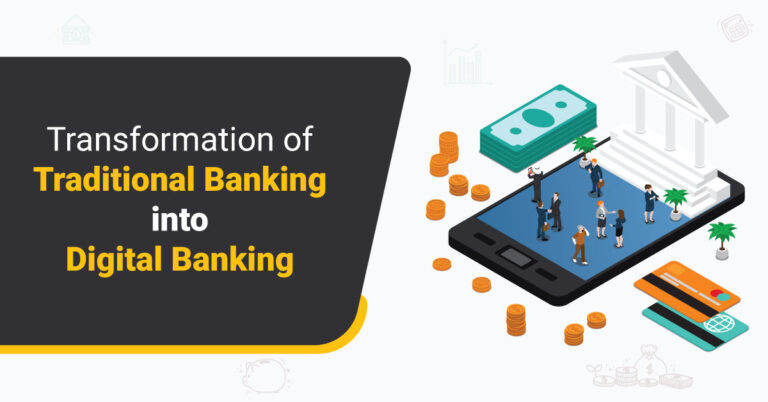Introduction
The cloud computing platform Microsoft Azure provides a number of capabilities for modernizing financial services. The financial services industry is a continually changing field that is always looking for fresh approaches to satisfy the demands of its clients. Organizations in the financial services industry are turning to cloud computing to assist them stay up with the rapidly changing environment due to the rising demand for digital financial services and the emergence of new technology.
Let’s start with an overview of the Microsoft Azure Cloud Platform
Azure was first introduced by Microsoft in the early 2010s. The platform gradually increased the number of services it provided, and today it provides more than 200 different services and apps for its users across more than 100 countries worldwide, essentially meeting all of their computing needs. According to a report – Almost 56% of organizations worldwide use Microsoft Azure for their cloud services.
It provides a wide range of cloud services, including infrastructure as a service (IaaS), platform as a service (PaaS), and software as a service (SaaS).
Azure provides a global network of data centres, enabling businesses to run their applications and store their data in the cloud with high availability and low latency. It also offers a wide range of tools and services to help businesses build, deploy, and manage their applications and services in the cloud.
Some of the key services provided by Azure include virtual machines, storage, networking, databases, analytics, artificial intelligence and machine learning, internet of things (IoT), and developer tools. Additionally, Azure offers a pay-as-you-go pricing model, allowing businesses only to pay for what they use, without having to invest in on-premises infrastructure.
Why Use Azure Cloud Computing for Your Business
In recent years, cloud computing has experienced tremendous growth in popularity. Because of the many advantages it provides, small and medium-sized enterprises are progressively moving many of their activities to a cloud platform also large-scale organizations.
Cloud and on-premises applications can be easily connected with Azure, which provides a reliable, consistent platform. Azure offers virtual private networks (VPNs), caches, content delivery networks (CDNs), and ExpressRoute connections to improve usability and performance.
There are several cloud service providers on the market among which the Google Cloud Platform, Amazon Web Services (AWS), and Microsoft Azure are the most well-known. It is up to you to decide which cloud solution is best for your company, considering your needs, your budget, and other aspects like platform features, simplicity of use, etc.
Here are the key services offered by Azure for transforming Financial Services and how they can help financial organizations meet their business goals:
-
- Blockchain: Azure offers blockchain as a service (BaaS) solutions for secure and transparent record-keeping and transactions. This is particularly important for the financial services industry, where trust and transparency are critical components of success. By using blockchain technology, financial services organizations can create secure and transparent systems for tracking and recording financial transactions, while reducing the risk of fraud and data breaches. With Azure BaaS solutions, financial organizations can build and deploy blockchain-based applications quickly and easily, without having to worry about the underlying infrastructure.
-
- Artificial Intelligence: Azure provides a range of AI services, such as machine learning, computer vision, and natural language processing, to automate and enhance decision-making processes in the financial services sector.
For example, financial services organizations can use machine learning algorithms to analyze large amounts of customer data to gain insights into customer behavior and preferences. They can then use these insights to improve their customer engagement strategies and provide personalized experiences. Additionally, natural language processing (NLP) can be used to analyse customer interactions and provide real-time insights into customer sentiment, which can help organizations make data-driven decisions.
-
- Cloud Computing: Azure offers scalable and secure cloud computing infrastructure for hosting financial services applications and data. With cloud computing, financial services organizations can reduce their IT costs by eliminating the need to maintain physical infrastructure and by reducing the amount of hardware and software they need to purchase.
Additionally, cloud computing allows financial services organizations to be more agile and responsive to changing market conditions, as they can quickly and easily scale their IT resources as needed. With Azure, financial services organizations can also benefit from enhanced security features, such as encryption, identity and access management, and network security, to help protect their sensitive financial data.
-
- Internet of Things (IoT): Azure provides IoT solutions for financial services to enable remote monitoring, predictive maintenance, and real time data analysis. For example, financial services organizations can use IoT devices to collect data from a wide range of sources, including ATMs, payment terminals, and other financial devices.
This data can then be analysed in real time to identify patterns and trends that can be used to improve the customer experience. Additionally, IoT can be used to monitor the performance and status of financial devices, allowing organizations to predict and prevent failures before they occur.
-
- Compliance and Security: Azure provides robust security and compliance features to meet the stringent requirements of the financial services industry. With Azure, financial services organizations can be assured that their data is protected with industry-standard encryption and that their applications and infrastructure are compliant with regulatory requirements, such as the Payment Card Industry Data Security Standard (PCI DSS) and the General Data Protection Regulation (GDPR).
Additionally, Azure provides a range of security features, including identity and access management, network security, and threat protection, to help protect financial services organizations from cyber-attacks and data breaches.
Some of the Major Benefits of Using Microsoft Azure Cloud Computing include:

-
- Scalability: Azure allows businesses to scale up easily or down their resources based on their needs. This helps businesses to manage their infrastructure costs and avoid underutilization or over-provisioning of resources.
-
- Flexibility: Azure offers a wide range of services and tools that can be tailored to meet the specific needs of businesses, from infrastructure as a service (IaaS) to platform as a service (PaaS) and software as a service (SaaS).
-
- Cost-effectiveness: It provides a pay-as-you-go pricing model, which means businesses only pay for what they use. This helps to reduce infrastructure costs and avoid the upfront investment required for on-premises infrastructure.
-
- Security: Azure provides advanced security features, including threat detection, encryption, and access management, to protect business data and applications.
-
- Reliability: The highly available and resilient infrastructure ensures business applications and data are always accessible.
-
- Hybrid capabilities: Azure allows businesses to connect their on-premises infrastructure to the cloud, enabling a hybrid cloud environment that provides the flexibility of the cloud with the control and security of on-premises infrastructure.
-
- Compliance: Microsoft Azure ensures that your company, regardless of the industry it is associated with, complies with all legal requirements. With Microsoft’s extensive knowledge, your firm is sure to cover the compliance standards fully and guidelines that are required, regardless of the industry—finance, health care, manufacturing, or education.
-
- Data recovery and emergency planning: While disaster recovery procedures are taking place, Azure’s superior systems solutions make sure you have the least amount of downtime possible. It provides you with many systems and backup technologies that guarantee quick data recovery, business continuity during the worst of emergencies, and protect your company’s integrity.
-
- The Endless Features of Azure: Azure provides you with a variety of services and app capabilities that let your staff innovate and create practical websites and mobile & web apps for your company. Numerous programming languages, including PHP, Python, Asp.net, Java, and Node.js, are supported by Azure. Overall, Azure Cloud Computing offers a number of tools to support IoT solutions for your company processes, particularly because it is supported by Microsoft’s strength and adaptability.
-
- Ease of Use: Since most computers operate on Microsoft, Azure’s primary advantage over alternative cloud platforms is that customers may quickly become acclimated to its features. Additionally, if a person uses Microsoft products and uses Azure Cloud services, they don’t need to worry about finding support resources, contacting customer service, or getting used to the platform. When using Azure, Microsoft has you covered for all of your needs.
-
- Azure CDN: Microsoft’s Azure CDN, or Azure Content Delivery Network, is a solution for high-bandwidth content that enhances user experience by providing quick content loading times. It speeds up media streaming, websites, and applications, enabling efficient tool use and implementation to improve corporate operations.
Importance of Azure Cloud Computing for Your Business

Azure cloud computing is important for businesses for several reasons:
-
- Agility: Azure enables businesses to quickly respond to changing market conditions and customer needs by providing a flexible and scalable cloud platform. This enables businesses to deploy and scale applications quickly and to develop rapidly and test new solutions.
-
- Cost Savings: Azure helps businesses to reduce costs by providing a pay-as-you-go pricing model, which means businesses only pay for what they use. This helps to reduce the upfront investment required for on-premises infrastructure, and to avoid the costs associated with underutilised resources.
-
- Global Reach: Azure provides a global network of data centres, enabling businesses to expand their reach and operate in new markets with low latency and high availability.
-
- Security: Azure provides advanced security features, including threat detection, encryption, and access management, to protect business data and applications.
-
- Innovation: Azure provides a wide range of tools and services, including artificial intelligence, machine learning, and big data analytics, that enable businesses to innovate and gain a competitive edge in their industry.
Transforming Digital Financial Services – and making lives easier
People learn about the benefits and advantages of digital financial services every day. The completion of small, incidental financial transactions, like depositing a refund check, can take just a few minutes, while major life-changing financial transactions, like obtaining a mortgage, move along more swiftly and smoothly as well. The ability to carry out transactions and operations from any location, at any time, lessens the need for in-person banking, aids in efforts to distance individuals from one another, and enhances people’s quality of life.
Digital financial services aim to make financial transactions and access to financial services more convenient and efficient through the use of technology, such as mobile and online banking. This can include services like online payment systems, mobile money transfers, digital wallets, and online lending platforms. By providing these services through digital channels, financial institutions can reach a larger customer base and offer more accessible and affordable services. The goal is to improve financial inclusion and make people’s lives easier by giving them access to the financial services they need in a convenient and efficient manner.
The World Economic Forum and the Cambridge Centre for Alternative Finance claim that the use of AI solutions in banking has become more widespread. The majority of financial services firms claim to have adopted AI technology in areas of business including risk management and revenue production. Financial institutions are expanding on their current solutions to address ever-more complicated problems as AI becomes more widespread in banking.
-
- 80% of banks are quite aware of the advantages that AI and machine learning may offer.
-
- Then 46% of respondents at banks with assets under $100 billion, 75% of respondents at banks with assets over $100 billion report that they are presently implementing AI plans.
-
- 79% of respondents in the US claim that mobile banking has replaced other methods of account access for them, while 89% claim that they use mobile banking channels.
-
- Chatbots will save banks up to $7.3 billion globally by 2023, according to several AI use cases that have already produced outstanding results.
Final Thoughts
Microsoft Azure offers a range of services that can help financial services organizations transform their operations and stay ahead of the competition. By leveraging the power of cloud computing, AI, IoT, blockchain, and compliance and security features, financial services organizations can improve operational efficiency, reduce costs, and enhance the customer experience.
Azure cloud computing is important for businesses that want to remain competitive and innovate in a rapidly changing marketplace. By providing a flexible, scalable, and cost-effective cloud platform, Azure can help businesses to drive growth and improve operational efficiency.
Azure can be your go-to solution when converting to the cloud because it has so many capabilities to provide and does so at a budget friendly pricing. With the rapid advancement of technology, moving your organisation to the Cloud—a very futuristic technology—would be a wise business move. Azure is the industry standard for cloud computing.









